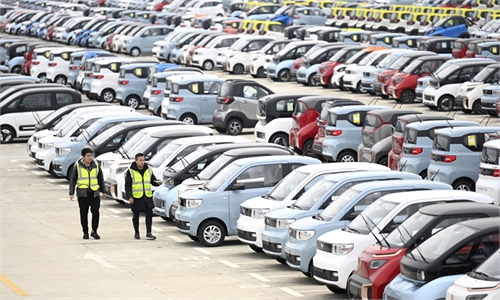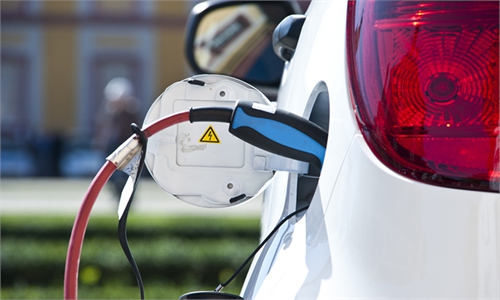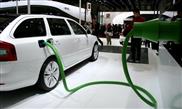
An NEV on the road Illustration: VCG
China is considering extending a purchase tax exemption for new-energy vehicles (NEV) to boost consumption, according to an executive meeting of the State Council, the country's cabinet, on Wednesday.
The move is a part of plan to boost car consumption, and the government also said it will boost the secondhand auto market.
The measures are expected to increase vehicle and auto-related consumption by about 200 billion yuan ($29.83 billion) in 2022, China Media Group reported, citing a read-out of the meeting presided over by Premier Li Keqiang.
The size of China's NEV market is estimated to exceed 5.22 million units this year, up 47.2 percent year-on-year, according to data from global market research firm International Data Corp.
In January, China issued a guideline on further improving charging facilities for electric vehicles, vowing to set up a charging system capable of meeting the needs of more than 20 million such vehicles by the end of 2025.
Meanwhile, as the Chinese economy is recovering from recent COVID-19 outbreaks, China is rolling out measures to boost consumption - a major growth driver - as part of efforts to keep the fundamentals of the economy stable.
Earlier this year, Li said that consumption in key areas should be expanded. Consumption in the services, such as medical, health, elder and child care, should be propelled, and spending on automobiles and home appliances should be encouraged, he said.
China's economy staged an impressive turnaround in May, as a set of better-than-expected official figures pointed to improvements in several crucial economic indicators, further highlighting the resilience of the Chinese economy against challenges posed by COVID-19.
The State Council's meeting on Wednesday also covered food security. The summer harvest is now guaranteed, and it has provided a solid support for this year's stable grain production, the meeting said, following the premier's inspection tour in North China's Hebei Province.
The quality of this year's summer wheat is better than in previous years. The output of soybeans increased slightly, and the output of rapeseed increased significantly, while nearly 80 percent of corn has been sown, and autumn crops are growing well.
The sufficient supply of grains serves as an anchor for price stability, the meeting noted, adding that China's bumper wheat harvest not only satisfies its own needs but also contributes to the stability of the international grain market.
Traditionally, the summer harvest spans from May to late June in China every year, with most of the work focusing on reaping winter wheat, a staple grain crop, and oilseed rape. The grain output in the period takes up about one-quarter of the annual total.
In keeping with the nation's pledge to keep its 2022 grain output above 650 billion kilograms, the wheat harvest is proceeding smoothly across the country. As of May 28, the harvested area for winter wheat had exceeded 2.5 million hectares, according to the Xinhua News Agency.
Global Times



